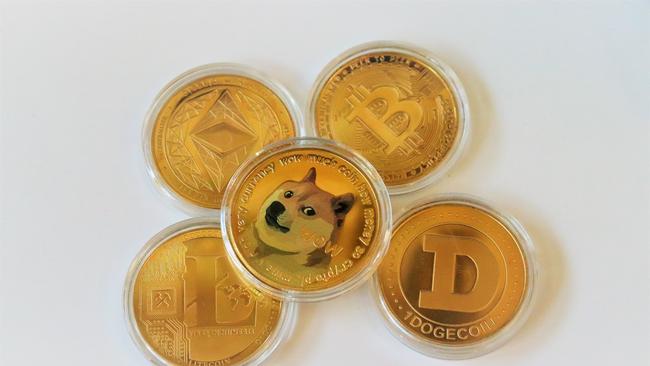Coinbase blocks 25,000 Russian-linked crypto addresses
One of the world’s most popular crypto exchanges says it has shared all the addresses with the US government to ‘support sanctions enforcement.’

The US’ biggest cryptocurrency exchange Coinbase says it’s blocking more than 25,000 cryptocurrency addresses it believes are linked to illicit Russian activity.
The change said the accounts were discovered through its own “proactive investigations” including using ”sophisticated blockchain analytics” to detect addresses indirectly linked to banned users amid the ongoing invasion of Ukraine.
The company said the 25,000 blocked accounts were “related to Russian individuals or entities we believe to be engaging in illicit activity” and have all been shared with the US government to “further support sanctions enforcement.”
“In the past few weeks, governments around the world have imposed a range of sanctions on individuals and territories in response to Russia’s invasion of Ukraine, Coinbase’s chief legal officer Paul Grewal said in a blog post.
“Sanctions play a vital role in promoting national security and deterring unlawful aggression, and Coinbase fully supports these efforts by government authorities.”
Mr Grewal said in the blog post that Coinbase has taken steps to block access to sanctioned actors, detect attempts at sanctions evasion, and anticipate threats.
That involves checking potential customers against lists of sanctioned individuals or entities and tracking IP addresses belonging to sanctioned parts of the world, he said.
“For example, when the US sanctioned a Russian national in 2020, it specifically listed three associated blockchain addresses. Through advanced blockchain analysis, we proactively identified over 1,200 additional addresses potentially associated with the sanctioned individual, which we added to our internal blocklist,” Mr Grewal said.
The executive added that crypto in particular has “properties that naturally deter common approaches to sanctions evasion“, including that most blockchains are public and traceable”.
“Once recorded on the blockchain, transactions remain immutable. No one (not crypto companies, not governments, not even bad actors) can destroy, alter, or withhold information to evade detection,” he said.
It comes after Ukraine’s vice prime minister Mykhailo Fedorov called for crypto exchanges to block blockchain addresses used by Russians.
“It’s crucial to freeze not only the addresses linked to Russian and Belarusian politicians, but also to sabotage ordinary users,” he said.
I'm asking all major crypto exchanges to block addresses of Russian users.
— Mykhailo Fedorov (@FedorovMykhailo) February 27, 2022
It's crucial to freeze not only the addresses linked to Russian and Belarusian politicians, but also to sabotage ordinary users.
However, major crypto exchanges including Coinbase and Binance have refused to block all Russian accounts, but will comply with economic sanctions.
As The Australian reported last week, a quadrupling in large cryptocurrency transactions sparked fear that Russia is using digital currency to circumvent sanctions imposed by Europe, the US, Australia and others.
Concern is based around cryptocurrency transactions worth more than $US100,000 ($A136,441) that swelled from $22bn to $88bn in the two days after western countries blocked Russia from the global SWIFT payments network on 26 February, according to a report by the Australian Computer Society’s Information Age.
There was evidence the money was mainly moved through blockchain, rather than invested in cryptocurrency, the report by David Braue said.
“High net-worth criminal ‘whales’, like the Russian oligarchs targeted in the current sanctions, are currently holding more than $34.5b ($US25b) in cryptocurrency, according to a new Chainalysis report that identified 4068 criminal whales.”
Australia’s Lowy Institute has also warned that blockchain-based financial networks were key to President Vladimir Putin’s efforts to sanction-proof Russia.
“The Russian government has made progress in its ‘digital rouble’ program, whereby transactions are carried out on a Russian-operated blockchain system. This version of a Central Bank Digital Currency is now relatively common across the world as many governments try to tap into, and control, the burgeoning cryptocurrency sector.”



To join the conversation, please log in. Don't have an account? Register
Join the conversation, you are commenting as Logout